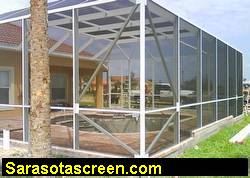(NewsUSA) - As temperatures dip lower, families can save money and keep warm by making energy-efficiency improvements to their homes.
The U.S. Department of Energy (DOE) has released essential tips for saving energy and money this winter to help Americans best prepare and manage their energy usage in a variety of ways.
According to DOE, on average, energy-efficient improvements reduce heating bills by 32 percent, estimating a threefold return on money invested. DOE offers these tips to help families cut their energy consumption this winter:
- Seal and insulate your home. Many insulating projects are inexpensive and easy enough for the average homeowner to complete. Filling air furnace leaks, adding more insulation and sealing off exposed ducts can sharply reduce heating and cooling bills.
- Perform routine maintenance. Replace your home's air filter every month. Hire a contractor to tune-up your heating, ventilation and air conditioning (HVAC) unit once a year. Regular maintenance will reduce immediate costs and help units last longer.
- Install a programmable thermostat. A programmable thermostat will keep your home at a lower temperature when you are not home, helping to reduce your energy bills.
- Conserve hot water. Air-dry dishes instead of running your dishwasher's heat cycle, take short showers instead of baths and wash only full loads of dishes and clothes. Saving water also saves money on energy used to heat it. Turn down the thermostat on your water heater to 120 degrees F.
- Look for ENERGY STAR appliances. DOE and the U.S. Environmental Protection Agency (EPA) created the ENERGY STAR program, which evaluates buildings and home products for energy efficiency. ENERGY STAR products meet strict guidelines and can help save money and energy. If every homeowner installed just five ENERGY STAR lightbulbs, America would save $8 billion a year in energy costs.
- Watch your electronics. Turn off computers and monitors when you're not using them. Plug TVs and DVDs into power strips, then turn off the power strips when home electronics are not in use.
- Drive sensibly. Aggressive driving wastes gasoline. Using overdrive gears and cruise control are easy ways to save gas. Go to www.fueleconomy.gov for more gas-saving tips.
For more tips from the Department of Energy, visit the Web site www.energysavers.gov
architecture design dwell homes pictures and video clips
Sarasota - FL
.jpg)
Rescreens Lanais Screened Front Entries Pool Cages Screened Patio Enclosures Aluminum Railing Screen & Aluminum Repair and Replacement Screw
Labels
accessories
(1)
additions
(1)
air conditioning
(1)
architecture
(7)
awnings
(2)
bathroom
(10)
bedrooms
(1)
blinds
(2)
books
(2)
Cabin retreat
(1)
California
(3)
cladding
(1)
Closets
(1)
concrete masonry
(3)
Cottages
(1)
decks
(2)
decorative products
(4)
design
(3)
Directories
(1)
doors
(1)
energy savings
(12)
fireplaces
(8)
Floor
(5)
Florida
(3)
Furniture
(4)
garage
(2)
garden
(1)
heating appliances
(1)
Home decoration
(6)
home improvements
(7)
Home interior design
(4)
home security
(3)
homes for sale
(2)
Housing
(1)
information
(5)
kitchens
(10)
laundry
(1)
lighting
(4)
Los Angeles
(1)
luxury houses
(4)
magazines
(1)
maintenance
(9)
Makeover
(2)
mansions
(1)
market
(4)
Miami
(1)
modular homes
(1)
Moving
(1)
Nevada
(1)
New York
(1)
nursery
(1)
outdoor
(2)
painting
(3)
patios
(1)
radiant heating
(3)
Recycling
(1)
Remodeling
(3)
Sarasota
(15)
services
(1)
small spaces
(1)
Spas
(1)
stoves
(1)
styles
(9)
sunroom
(1)
swimming pool
(3)
Tampa
(1)
Texas
(1)
Tips
(2)
upgrade
(1)
videos
(19)
water heater
(1)
windows
(2)
wood stoves
(1)
Blog Archive
-
▼
2008
(128)
-
▼
December
(7)
- Use Solar Shades to Save Money and Enhance Your Home
- Insulation Keeps Heat In, Cold Out
- Mix Modern and Rustic Pieces For a Stylish Feel
- Upgrade Your Lighting With These Simple Tips
- Designing the Home of Your Dreams, California-Style
- Five Common Carpet Myths Debunked
- Save Energy, Save Money, Stay Warm
-
▼
December
(7)





.jpg)
.jpg)
.jpg)

No comments:
Post a Comment